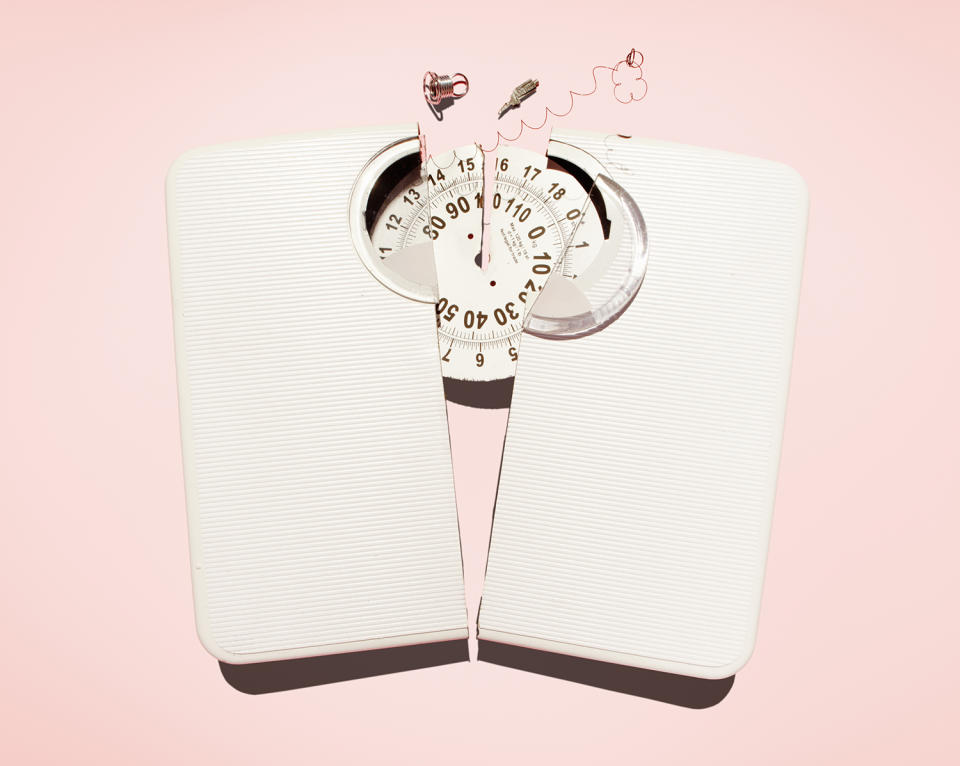Americans are more obese than ever — and exercise isn't helping
A new study from the Centers for Disease Control and Prevention’s National Center for Health Statistics (NCHS), released Thursday, revealed new information with respect to Americans and obesity: More Americans than ever are considered obese — and exercise isn’t helping.
Based on the statistics, gathered from January through September 2017, 31.4 percent of U.S. adults aged 20 and over were considered obese — up from 19.4 percent in 1997. (NCHS defines obesity as “a body mass index of 30 kg/m2 or more.”) The statistic aligns with another rise among adults: levels of exercise. In the same time period, the number of Americans over 18 who met the 2008 federal physical activity guidelines for aerobic activity reached 53.8 percent, up from less than 45 percent in 1997.

The federal physical activity guidelines require at least 150 minutes a week of moderate-intensity physical aerobic activity or 75 minutes a week of vigorous physical aerobic activity (or a combination of the two). So if more than half of America is following these guidelines for exercise and making it a part of their routine, why are 31 percent of adults in the U.S. still obese?
A lot of the answer, according to experts, is dependent upon the food we’re eating — and the size of portions. Although common sense would indicate that the more you exercise, the more weight you’ll lose, a number of studies have shown that that’s not necessarily the case.
A 2015 study in the New England Journal of Medicine looking at the global impact of obesity found diet to have a bigger impact on weight than exercise. “Increased availability, accessibility, and affordability of energy-dense foods … could explain weight gain among different populations,” the study reads. “The reduced opportunities for physical activity … have also been considered as potential drivers; however, these changes generally preceded the global increase in obesity and are less likely to be major contributors.”
Last October, two reporters at Vox did a deep dive on this issue, combing through more than 60 studies on diet and exercise. Their conclusion: Exercise will not fix the obesity epidemic — and the belief that it will is counterproductive. “Despite the prevailing evidence, exercise is pretty unhelpful for weight loss,” Julia Belluz and Javier Zarracina conclude. “While 100 percent of the energy we gain comes from food, we can only burn 10 to 30 percent of it with physical activity each day.”
Based on a recent report card of America’s eating habits, the amount of food the average individual needs to burn off is significant. Sponsored by the Center for Science in the Public Interest, the study found that Americans are now eating an estimated 2,535 calories a day — up from an average of 2,075 in 1970. Worse, the majority of those additional calories, according to the researchers, come from flour, cheese, and fat. Although there have been improvements, such as a reduction in the amount of added sugar we consume, they haven’t been drastic enough. Based on this study, Americans still consume an average of 78 pounds of added sugar in a single year.
The CDC report came on the heels of other illuminating data this week: a WalletHub survey ranking the most obese cities in America. No. 1 on the list was Little Rock, followed by Shreveport, La., several cities in Texas (McAllen, Edinburg, and Mission), and Memphis. Earlier studies have shown Southern states to have a higher prevalence of obesity, specifically places with high poverty levels, where access to healthy food is scarce.
America has the #fattest population in the world. But some cities are more #healthy than others. Read more here: https://t.co/k0XcGYMJqn pic.twitter.com/UWMEWEyJtn
— WalletHub (@wallethub) March 14, 2018
While the country still has work to do in curbing the obesity epidemic nationwide, the news that exercise is less effective shouldn’t be taken as an excuse to avoid it entirely. Exercise has hundreds of benefits, ranging from improved mental health to lower risk of chronic diseases. So don’t hesitate to go on a brisk walk — just don’t follow it with a Snickers bar.
Read more from Yahoo Lifestyle:
Follow us on Instagram, Facebook, and Twitter for nonstop inspiration delivered fresh to your feed, every day.
